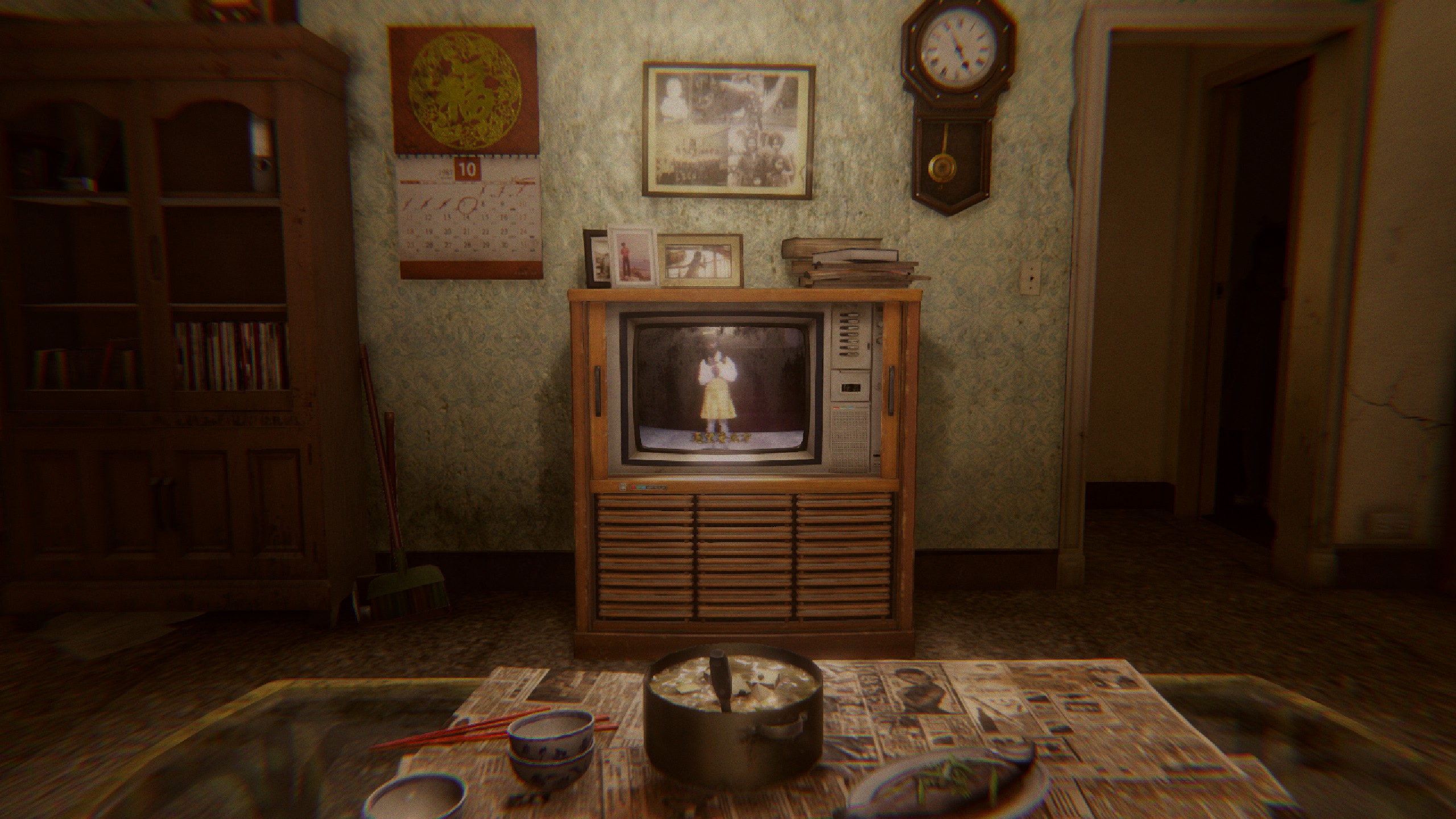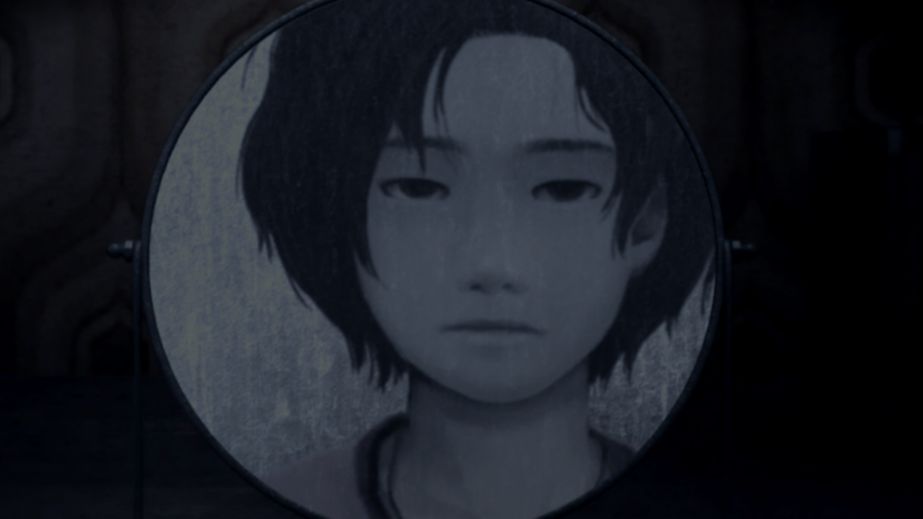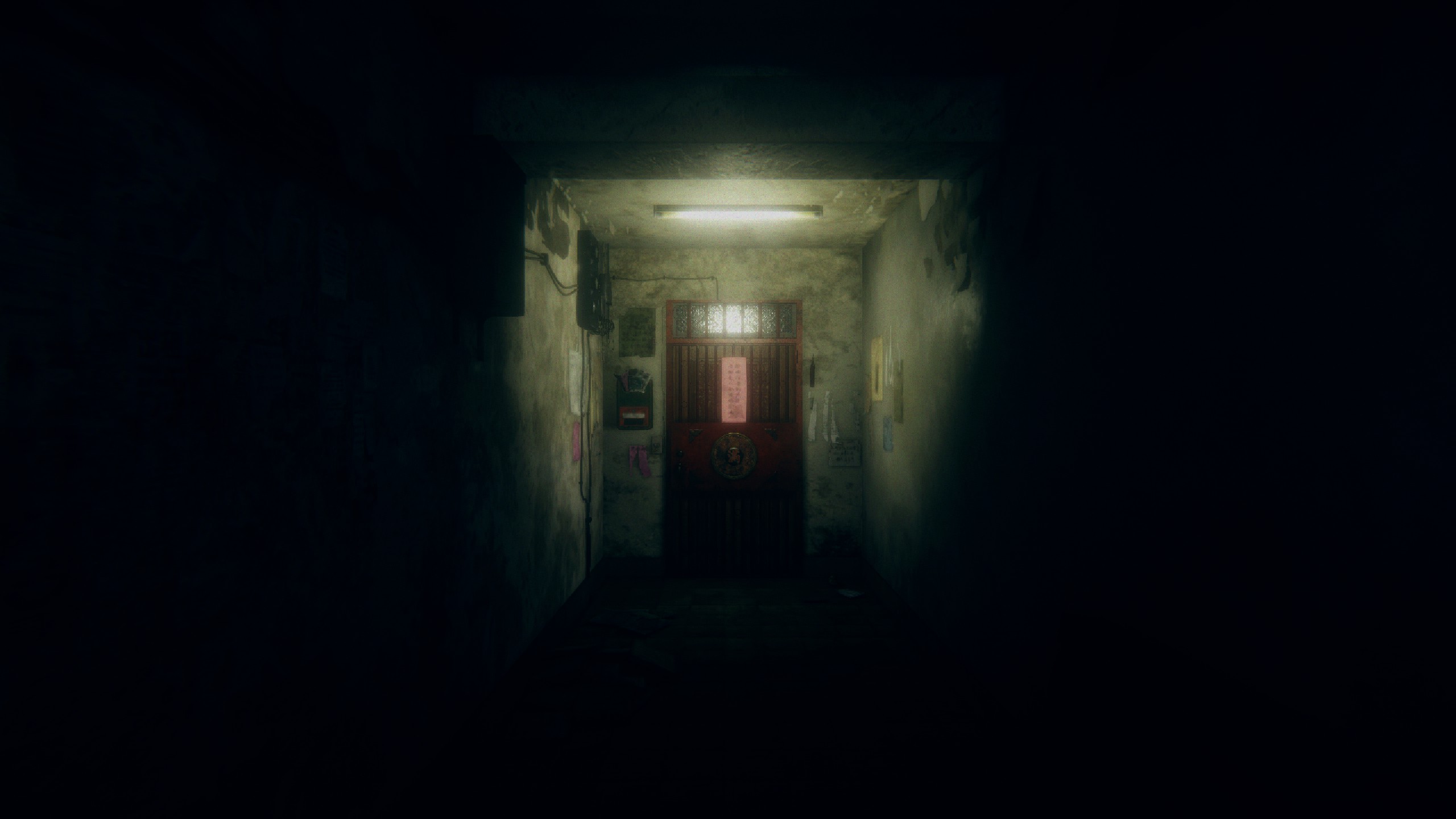Devotion has ghosts, time travel, and more emotion than most horror games
Things go terribly, terribly wrong for a family in 1980s Taiwan.

There's this part in Devotion where a ghost goes from horrific and threatening to intensely pitiful in the span of a few seconds. It's when I realized that Devotion's first priority was to tell a sad family story rather than take me through another haunted house, pairing scares with the elaborate tricks horror games typically lean on.
Even so, Devotion has plenty of scares propped up by smoke and mirrors, scenes that change when you look away and subtle visual filters that distort an otherwise plain domestic setting. There are specters and creepy dolls and rattling window panes. And yeah, it's set in a house—well, a small 1980s apartment in Taiwan, to be precise. At first glance, Devotion looks like yet another first-person horror hallway-sprinter doing a poor P.T. impression.
But Devotion uses all those familiar horror game trappings to tell a simple, tragic story about parenting, the culture of success, spiritualism, and mental illness in 1980s Taiwan. By the end of its blessed 2-hour runtime, I was more scared of these characters confronting their personal demons than any literal ghost or goblin.
A loving family
Some of the scares aren't entirely novel, but every single one feeds right back into the story with needlepoint purpose.
You play as Feng Yu, a once-successful screenwriter shacked up with your wife, Li Fang. A former pop star, she called it quits to spend more time at home raising your young daughter Mei Shin while you continue chipping away at the next great work. Sounds like a perfectly fine family to rip apart.
Besides the scares and generational trauma, Devotion is a pretty easy ride. You're rarely in danger—there's maybe one section with a fail state—and the environments are small and straightforward. Most of it is set in the apartment, but Devotion opens up a bit early on, giving you the ability to travel to three versions of the apartment, each a snapshot of a different year: 1980, 1985, and 1986.
As part of what is a grand hallucination or spiritual test, you'll need to visit each era to fix the past and create the perfect future. Some simple puzzles ensue that require bringing objects from one era to the next in order to affect the future. Planting an origami flower in one era blossoms into hundreds in the next. Bringing a nice camera to the past fixes a blurred photo in the future.
Every object is significant to the story, either the treasured item of a family member or a keepsake from a nice memory. In building puzzles around them, Devotion teaches you about these people and what they cared about, and as a father trying to fix his past mistakes, Du Feng Yu begins to realize where his devotion belonged in the first place.
Keep up to date with the most important stories and the best deals, as picked by the PC Gamer team.
In revisiting his past, the trauma that brought on this whole scheme becomes clearer, assembled piecemeal through discarded letters and scripts, bits of folklore, flashbacks, authentic looking FMVs that play on the living room TV, and changes to the apartment that reflect an increasingly fragmented domestic life. Li Fang clearly misses the limelight, Feng Yu's screenplay isn't coming together, and Mei Shin is subject to it all, a vessel through which two struggling parents try to live their own lives again, the right way this time. Poor little Mei Shin. A human experiment for someone else's dreams.
Home sweet home

Detention is Red Candle's last game, and it's another great horror story. If Devotion does the trick for you, Detention likely will too.
The apartment is the perfect canvas for offhandedly observing the dissolution of a family. It embodies what I love about how videogames can tell stories: a dense assembly of details, ranging from subtle touches like the growing clutter on a coffee table to the surprise appearance of familiar, crumpled figures standing at the bedroom window. Devotion engages every sense but smell, though I'm OK leaving that one out. That fish drenched in pills has been dead for some time and I'm guessing ghosts don't have great hygiene.
They're really something to behold, though. The specters range from surreal to cliched—a color-drained body double wearing a grinning mask of light easily outdoes the spooky doll, for instance—but even the cliches signify some terrible truths. While dolls are a cheap trick in Layers of Fear, they're used with vital narrative purpose in Devotion. Something bad happened to Mei Shin, and her father, the player-character, sees her as an object, a cute plaything.

Maybe it's a coping mechanism, maybe it's a visual metaphor for his treatment of her, maybe it's just easier to animate—I have some theories built around the failings of a man's ego. You don't play a great dad and the doll is just one of the gentler truth-delivery mechanisms. It means some of the scares aren't entirely novel, but every single one feeds right back into the story with needlepoint purpose. (Seriously though, that mask guy is some truly eerie shit.)
I've said too much already. It's short and sweet, just as long as it needs to be, and the experience hinges on slamming into your own epiphanies as the big picture rushes in. Devotion presents as familiar and predictable, but goes to unexpected places, dealing with terrors both real and imagined, and climaxes in an assembly of light and music and emotion that few horror games even try for.
James is stuck in an endless loop, playing the Dark Souls games on repeat until Elden Ring and Silksong set him free. He's a truffle pig for indie horror and weird FPS games too, seeking out games that actively hurt to play. Otherwise he's wandering Austin, identifying mushrooms and doodling grackles.


